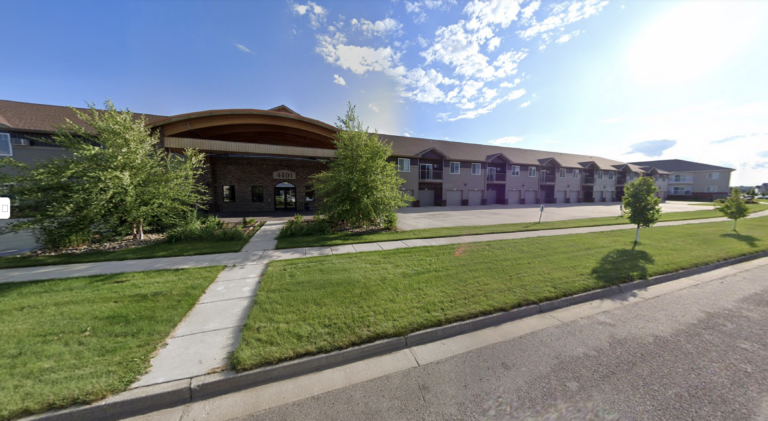
About the series: According to Elisabeth Kübler-Ross’s model, there are five stages of grief: denial, anger, bargaining, depression, and acceptance. While this model explains the grief cycle based on bereavement, we’re going to explore how loved ones and those with Alzheimer’s navigate the cycle as the disease progresses. Last week we talked about denial (click here to find that blog if you missed it) and how it affects not only the caregiver but also the person with Alzheimer’s themselves. This week we are diving into anger.
Anger is the second stage of the grief cycle. Being forced to acknowledge that your loved one or you yourself may forget names, faces, relationships, and fond memories can send you reeling. You might go from sad to mad often. It’s okay to be emotional, but for families and caregivers, it’s best not to unpack your bags and live in a permanent state of anger because it won’t help the person who needs you.
When we spoke with Alzheimer’s Association staff member Melanie Williams about her experience with the grief cycle during her mom’s Alzheimer’s journey, she explained, “The anger and guilt are almost constant. You feel anger about the disease and what’s happening, and then you feel guilty because you feel anger. Sometimes you want to correct them, and you want to get angry, but you remind yourself that they can’t remember, and it’s not worth it to get mad.”
Find Senior Living Near Me
With any terminal disease, anger comes naturally. While we’ve touched on the ways anger impacts caregivers, let’s dive into how it impacts those who suffer from Alzheimer’s. Because of the complications that accompany the disease, those diagnosed may experience more anger during the course of their illness.
Behavior is Communication
As Alzheimer’s progresses, effective communication can be compromised. When someone can’t convey what they need, they may become very frustrated and respond with behaviors or in ways that are not like the “them,” you know. This could account for curse words and other out-of-character ways they might react.
It’s important not to take the symptoms of Alzheimer’s disease personally. If your loved one communicates through unusual behaviors or uses coarse language, don’t reorient or scold them. Remember, this is Alzheimer’s and not your loved one. Instead of trying to correct them or change what they’re doing, look for what triggers them to respond that way.
Anger in someone with Alzheimer’s can stem from physical pain. If they can’t clearly explain that they’re hurting, it can be displayed through grimacing or acting out. Ensure they have access to regular medical care to address potential sources of pain.
Crowds or large spaces can overstimulate those with Alzheimer’s and create anxious or even angry feelings. If your loved one cannot communicate how they feel, they may do so by leaving or hiding in those settings.
Sundowning
While many of us get tired by the afternoon, those with Alzheimer’s may be exhausted, leading to increased confusion, frustration, or even negative behaviors. This is referred to as “sundowning.” Symptoms can include anger and agitation as the sun goes down and may last into the evening.
Melanie recalled a difficult conversation with her mom, who was sundowning and fixating on where she would be buried. She explained, “It’s easy to shoo-shoo those conversations, but I just decided I had to dive into them, no matter how hard they are, to know what’s bothering her. I asked her what she would like and want to do, and that seemed to help—at least for that night. Once we finally decided on a place where she’ll be buried, that brought her a huge sense of relief.”
If your loved one is experiencing sundowning, be mindful of what you plan for the later part of the day. Know that your visit may require the utmost patience during the afternoon or early evening. Reconsider the timing of medical appointments or family gatherings. Speak with their physician to determine if there’s a need for medical intervention to address possible pain or anxiousness.
Therapeutic Fibbing
Therapeutic fibbing is a useful strategy for those with Alzheimer’s who experience extreme anger and agitation. Some might say, “Isn’t it just lying?” Well, kind of, but the “why” behind this is what’s important. Therapeutic fibbing isn’t lying to deceive; it’s helping someone stay calm.
When Melanie’s mom moved from assisted living into a memory care community, it took a considerable amount of time for her to acclimate to her new surroundings. She asked frequently when she was moving back to her former apartment. Melanie’s brother explained that the apartment building was undergoing renovation so that all the apartments would look like the one she was currently in. She was able to conclude from that explanation that there was truly no need to move back.
Therapeutic fibbing depends on the situation and what works for each individual. If they accept the explanation, it can offer comfort, but it’s not always going to work, and it takes creativity when it doesn’t. Caregivers know memory loss and can offer them compassionate communication. Some consider adult day services or a longer-term care option, like a memory care community. Both services provide dignified care in a safe environment with staff who know how to alleviate the anger and anxiety that can accompany Alzheimer’s.




